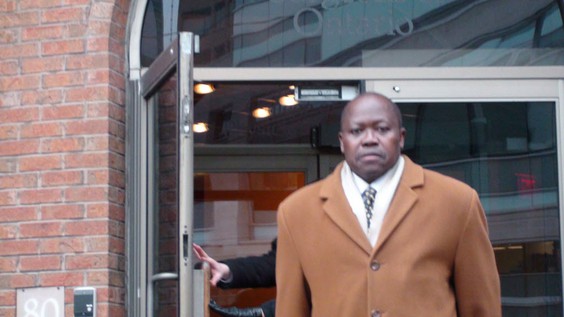Michele Mandel
Published:August 26, 2021
-Toronto Sun
For more than a year, the family doctor flooded Toronto streets with OxyContin, diverting an estimated 225 tablets a day of the highly addictive opioid onto the black market in a scheme that also defrauded Ontario’s healthcare system of three-quarters of a million dollars.
Dr. John Kitakufe was busy peddling in drugs despite having been convicted and jailed for a similar scheme in Chicago decades earlier — and even after assuring the College of Physicians and Surgeons of Ontario (CPSO) he had changed his ways.
In 2007, an Ontario judge sent him to jail. In 2010, he was stripped of his licence.
Now the twice-jailed doctor says he deserves to treat patients again and was back before a committee of the CPSO this week asking to be reinstated.
But how many chances should a convicted fraudster and Oxi peddler receive?
The college, for its part, says no more.
In closing submissions, CPSO lawyer Emily Graham insisted Kitakufe has squandered his previous opportunities and hasn’t done enough to prove he no longer poses a risk to the public. All these years later, she said, he still doesn’t really take responsibility for his serious crimes.
Instead he blames everyone from the government to the pharmaceutical industry, she said, casting himself as another “victim” of the opioid crisis — when in fact, Graham insisted, “he contributed to the existence of that crisis through his actions.”
His scheme was all about financial greed, the lawyer said.
From February 2005 until his arrest by the OPP in September 2006, Kitakufe fraudulently billed OHIP almost $200,000 for phony medical exams where he would then issue prescriptions for “medically unnecessary” OxyContin. The government was bilked out of a further $575,000 when the bogus patients then filled their prescriptions for pills that were resold on the street for several million dollars.
Court was told the drug peddling doc got a $200 kickback from his co-conspirators for every Oxy script he wrote. It’s estimated Kitakufe pocketed $260,000 in cash.
Sentenced to 32 months in custody, he served 20 months before he was paroled. He was also ordered to pay $50,000 in restitution to the Ministry of Health.
In 1986, Kitakufe had been convicted for his part in a fraud scheme while working as a doctor in the southside of Chicago — but the Ontario regulator let him off easy. His medical licence was suspended for just six months.
They must have believed he’d learned his lesson from Chicago. Instead, he was back in trouble with the law. In 2010, the discipline committee found the only appropriate penalty was revoking his licence.
Now all these years later, Kitakufe says he’s a changed man who wants to give back to his community.
His lawyer, Sam Baker, told the CPSO committee over Zoom that Kitakufe has “enormous shame and remorse.” He’s now heavily involved in the Church of Jesus Christ of Latter-day Saints, engages in therapy and no longer has any family financial obligations that could steer him wrong.
“He has recovered from whatever it was that caused him to so egregiously offend,” he pledged.
Now the doctor is anxious to take care of patients under any restrictions, Baker said, including a ban on prescribing narcotics.
Does he deserve another chance? Has he paid his debt to society?
According to the college, Kitakufe hasn’t earned the privilege to resume his care of patients.
As well as his lack of insight, Graham told the committee that there’s no evidence he’s continued any medical education since 2016, he never took the required boundaries course, he’s presented no forensic risk assessment or detailed plan of how he would be monitored.
It would be difficult to explain to the public why they would reinstate a “twice convicted fraudster and trafficker,” the college’s lawyer said.
It would indeed.
The committee has reserved its decision.




